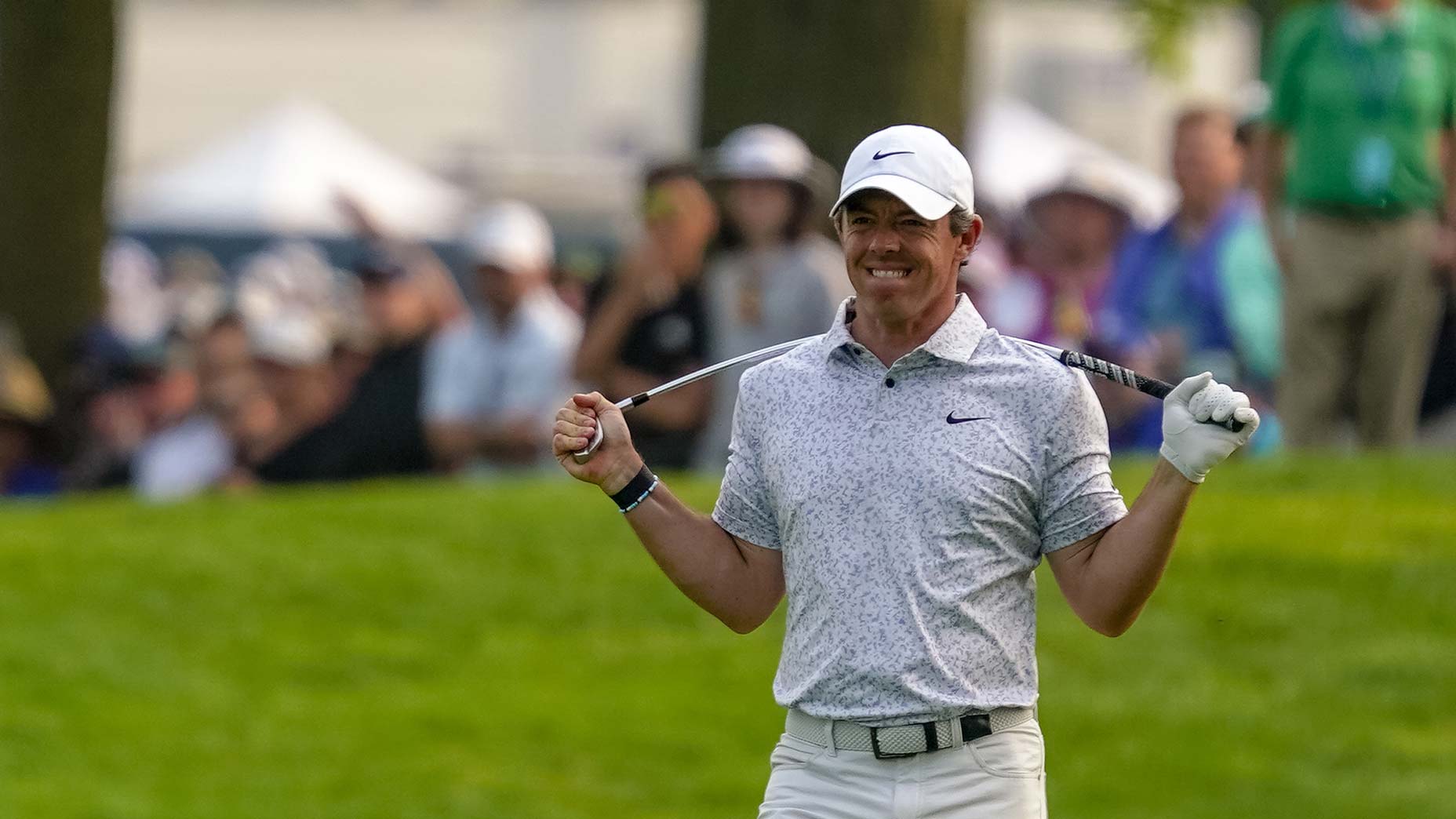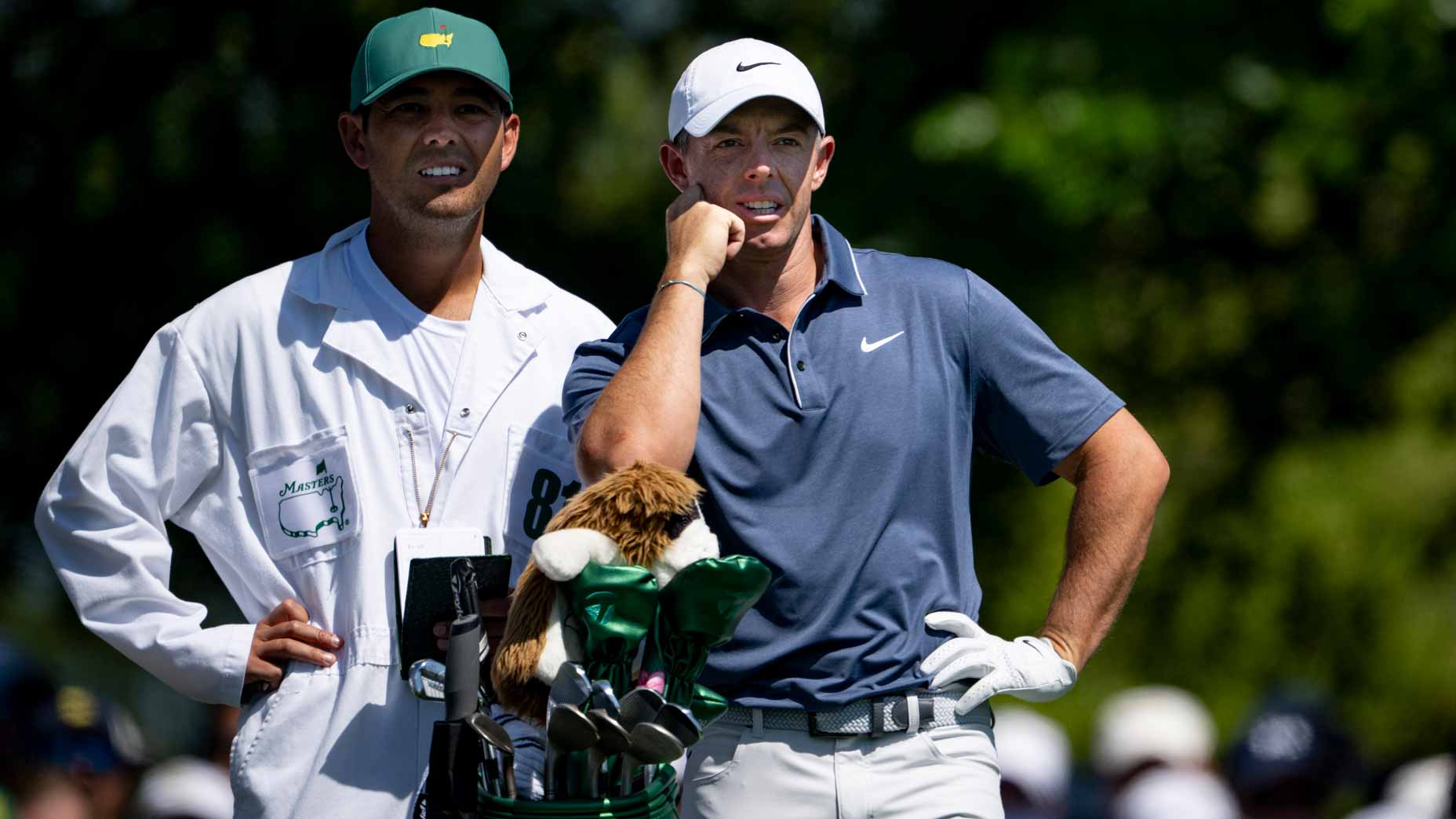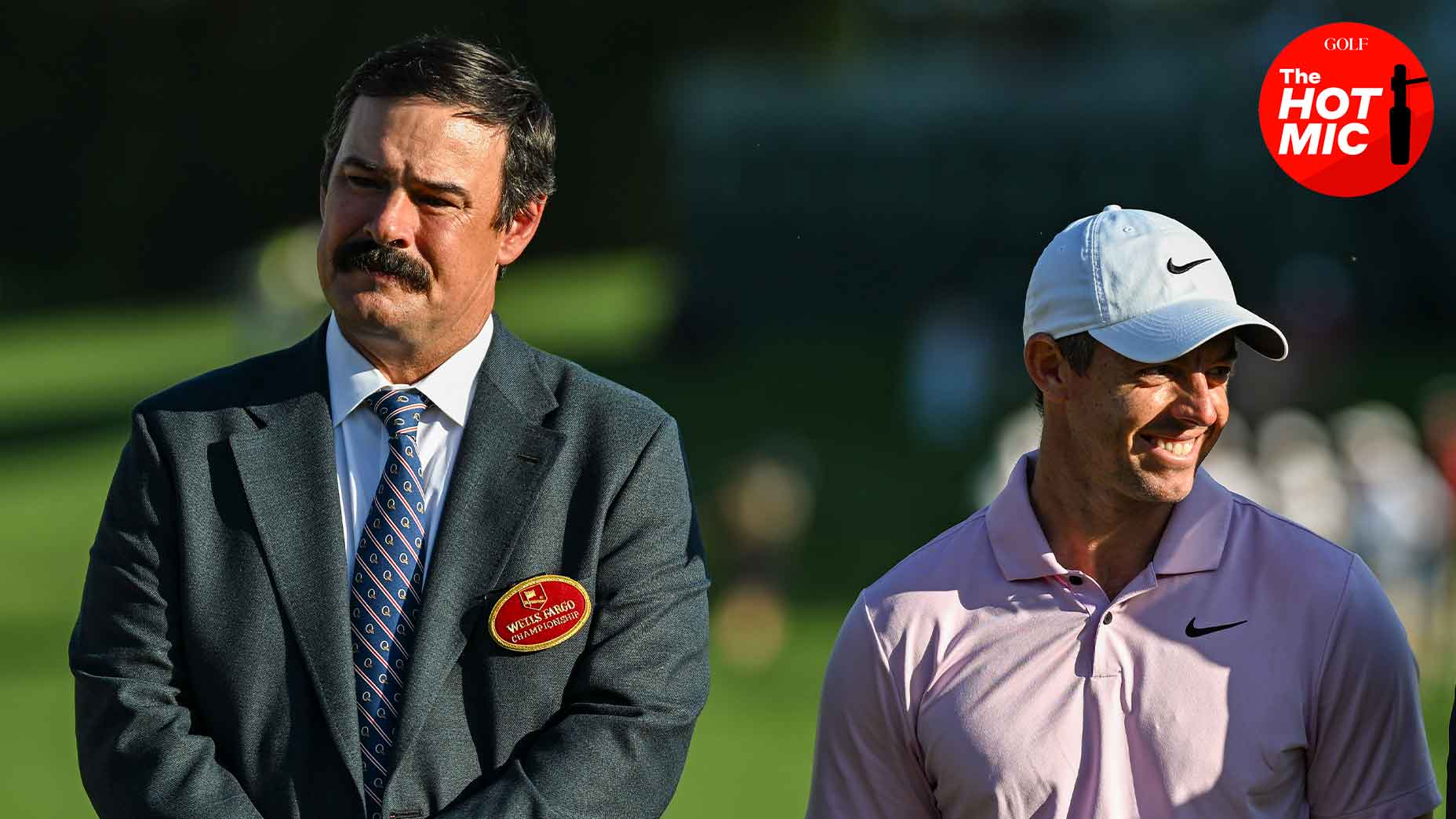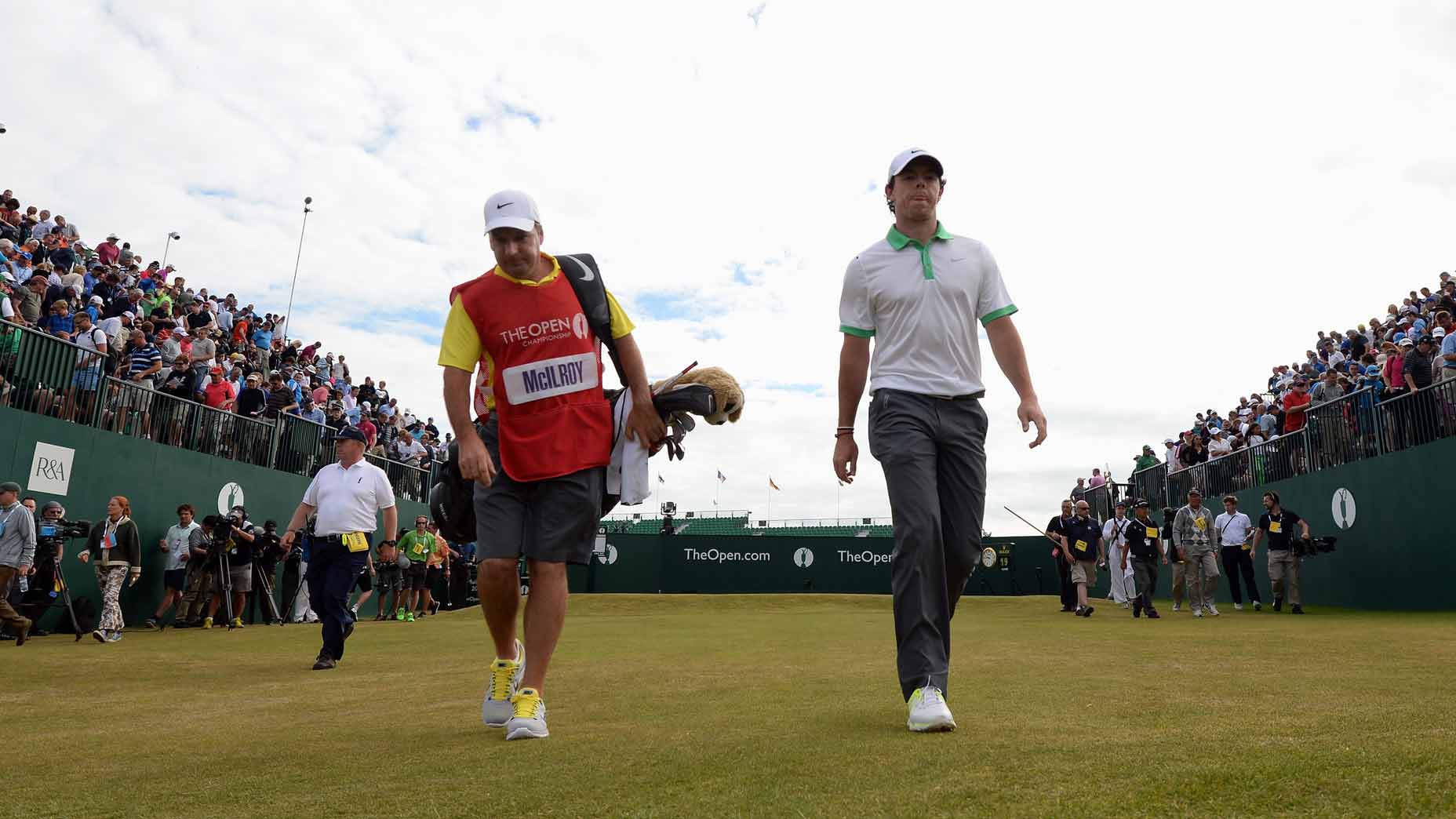ROCHESTER, N.Y. — It seemed impossible to distill the entirety of the Rory McIlroy major championship experience into a single moment. The heartbreaks have been too many, the triumphs too distant, the frustration too great.
Well, it was impossible. Until Michael Block stepped to the 15th tee on Sunday afternoon at the PGA Championship.
As Block took his practice swings, the reality sunk in: Rory had just lost the PGA Championship. Of course, it hadn’t happened quite that quickly. He’d played a distinct breed of up-and-down golf for the better part of four days at Oak Hill. He’d struggled with his driver and his irons and his putter. He’d hardly ever been in serious contention.
But as he stared down yet another right-miss-turned-short-sided chip, there was no avoiding the obvious. He trailed Brooks Koepka, the tournament leader, by too many. He had too few holes left to play. Hope was, finally, gone.
It was at this moment that nine years of major torment suddenly came to life. Block stepped to his ball and swung, hitting “this lovely draw back into the wind” (McIlroy’s words) on a brilliant line with the flagstick. Then something odd happened: the ball disappeared. The crowd erupted.
Michael Block had made an ace.
McIlroy, on the other hand, had just watched a 46-year-old PGA teaching professional with zero made cuts since the Obama Administration have the moment of pure major championship bliss he’d been in pursuit of for the better part of a decade. Because he is a very decent human being, he joined the celebration for a few moments. But because he is also a human being, Rory couldn’t contain a moment of nihilist disbelief as Block walked ahead to pluck his ball from the (now mangled) hole.
“I guess when it’s your week, it’s your week,” he said later, the same pained look on his face. “With the way the week has went for him, it was a fitting way to cap off his PGA Championship.”
It was fitting, too, for McIlroy, who quietly recorded his fifth top 10 in his last six major starts on Sunday in Rochester, a streak of major “success” that he clearly doesn’t view as such. While Block stepped into an express elevator to major championship glory on Sunday afternoon, McIlroy rode the Greyhound back to golfing misery, his final round proving emblematic of the last nine years of major starts for him: good, but not nearly good enough.
As it turns out, the suffering is the most consistent part of Rory McIlroy’s major championship career — not that he would choose to have it this way.
“I feel sort of close but also so far away at the same time,” McIlroy said after. “It’s hard to explain. I feel like sometimes it was the worst I could have played, but then at the same time, it’s like the best I could have done.”
Even from a distance, the discourse surrounding his snakebitten major fortunes is exhausting. McIlroy is both a media darling and one of the most tortured players in the sport; a combination that has elicited near-deafening coverage of his failures. Up close, it’s even tougher to watch. McIlroy is so thoughtful he may be too thoughtful. The rollercoaster gets worse when you know what’s coming.
“I go to the second tee on Friday morning or Friday afternoon, and I see I’m already 10 back of Brooks or whatever,” he said. “So then I’m thinking, oh, geez, I have no chance of winning, and things sort of crumble. It’s a mental fragility.”
This week, in an effort to turn the tide, he tried a new strategy. He shortened his press conferences to five questions. He spent less time during practice rounds chatting with friends. When he was asked a question about LIV, he elected not to answer it.
“I guess I just came in here trying to play a golf tournament, not thinking about — honestly, not thinking about getting myself in contention,” he said. “Not thinking about winning. I honestly didn’t feel like I had a chance of winning this week.”
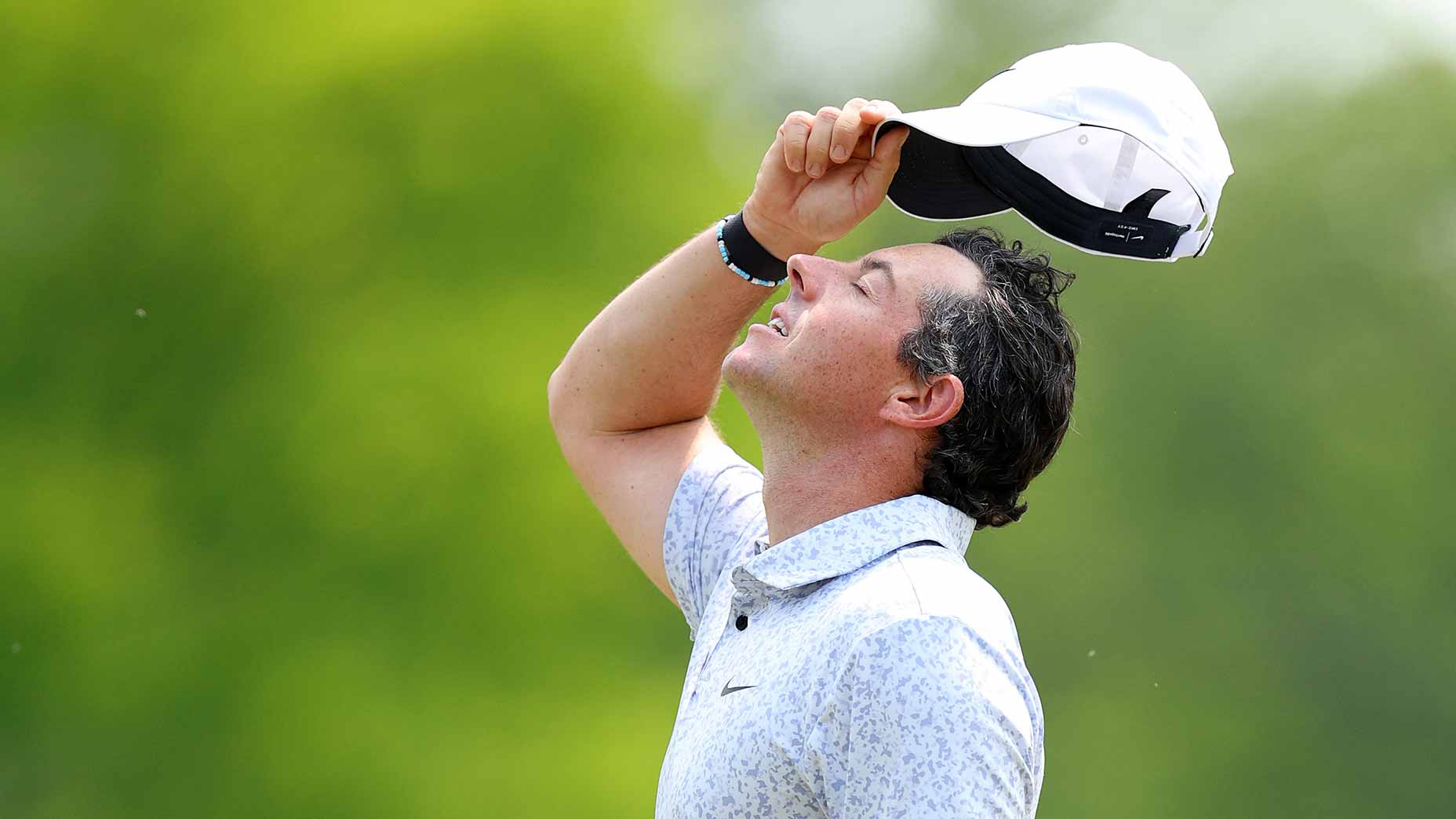
It wasn’t the first time McIlroy had experimented with a new major strategy. He’s tried taking it all in, blocking it all out; practicing a ton in advance, not practicing at all; treating the week like the biggest deal in the world, treating it like it doesn’t matter at all.
The result with this strategy, too, was a loss. McIlroy was the picture of consistency all week, his Thursday 71 followed by three straight 69s. Another top 10. He lost by seven strokes to Koepka.
“I’ll look back on this week as proud of how I hung in there,” he said later, but it was clear from his tone that he didn’t mean it. Not fully, anyway.
And how could he? There’s no part of prolonged misery that brings him pride. No moment of the last four days of golf that he has earnestly enjoyed. He loves it but he decidedly does not like it.
“It’s all about putting yourself in position and giving yourself chances,” he said Sunday, echoing a point he’s made many times in the past. “The more chances you give yourself, the more probability one is going to fall your way.”
Yes, the probability gets higher with every near-miss, but probability means very little when it’s Sunday afternoon and you’re trailing by five. Rory knows this, which is why he could be spotted bending his pitching wedge into a tuning fork in the 18th fairway on Sunday.
The problem is that he can’t escape it. He will be good enough to win majors for a very long time, but much more often than not, he will lose. This doesn’t make him a choker, a failure, a loser, or any of the other names he has been called over these last nine years and 32 major starts. No, it makes him something far more vulnerable than that. It makes him human.
As McIlroy walked down from the 15th tee box with Michael Block to his left, the pain of the last six weeks was written all over his face. Of course he was happy for Block, who for the moment was overcome with childlike wonder. But a larger part of him seemed morbidly amused by the golf gods’ latest middle finger. He laughed as the crowd roared at Block, then escaped with his last bogey of the tournament.
The end of Rory’s suffering would not come on Sunday at the PGA Championship. It may not come at all.
But as another major dissolves into frustration, there is at least one certainty: he’ll be back again for more.
